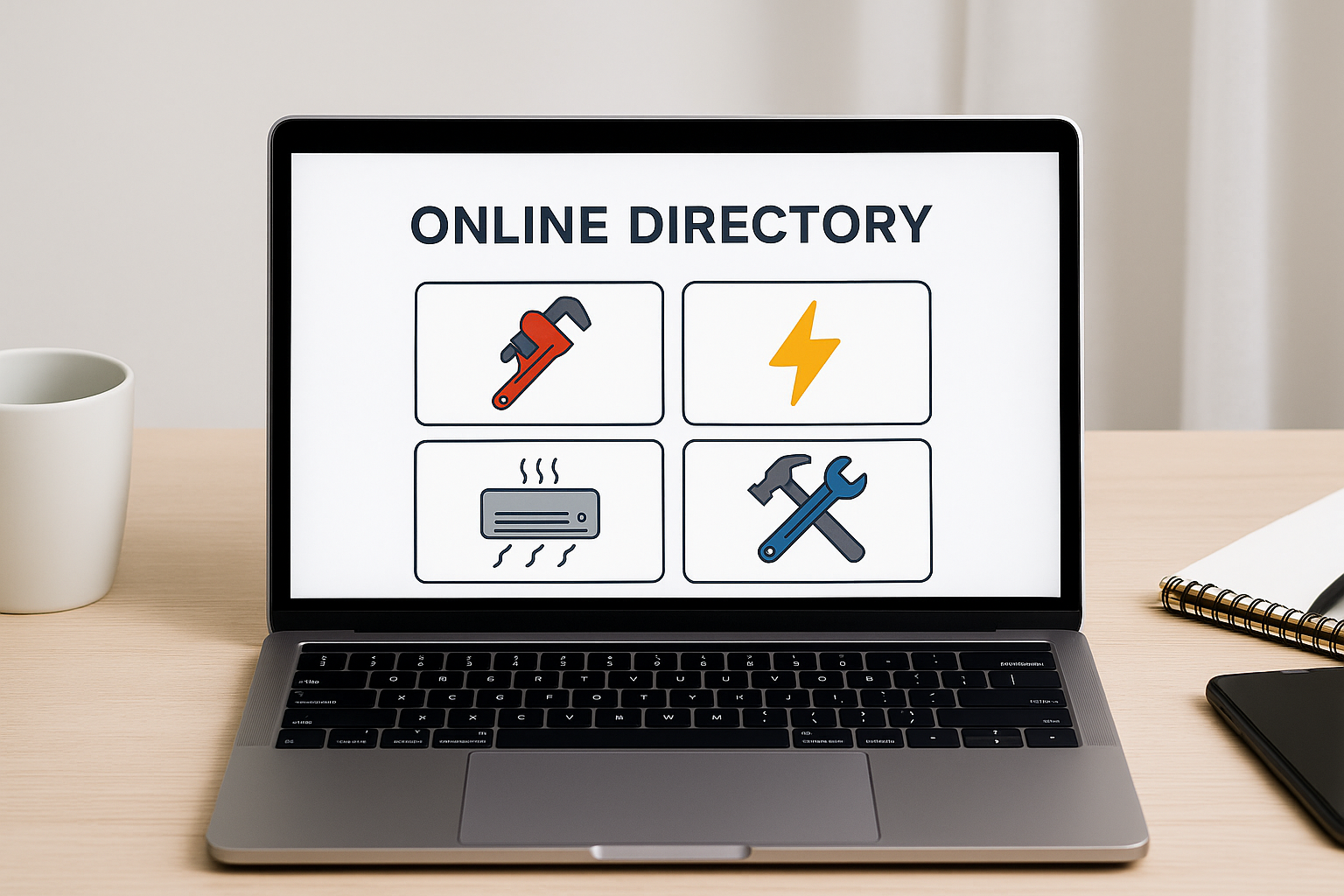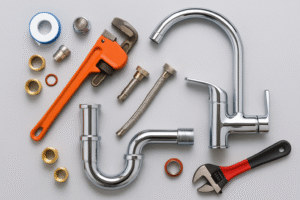Hiring the right repair service keeps your home safe. It protects your family and your property. A trusted service handles the issue without stress. You get peace of mind and long-term results.
A poor choice leads to bigger problems. You might face damage, delays, or extra costs. Some providers cut corners or leave jobs unfinished. Others disappear after taking payment. One mistake can cause weeks of hassle.
A smart choice fixes the problem fast. You save time. You avoid repeat work. A skilled repair crew knows what to do and how to do it well. You also get better tools, cleaner work, and safer results.
Online directories like Numbers and Names make the search easier. You get listings, reviews, and service details in one place. Still, results depend on how you use the tool. Smart searching, clear goals, and proper checks lead to better choices.
What Type of Repair Do You Need?
Start by knowing the problem. Don’t guess or assume. Walk through your home and spot what needs fixing. Maybe the lights flicker. Maybe the faucet leaks. Maybe the heater makes noise.
Each issue points to a specific trade. You might need a plumber, an electrician, or an HVAC expert. Don’t mix them up. A plumber won’t fix wires. An electrician won’t repair gas lines.
Check the directory for the right category. Use it like a map. If the heater fails, go to HVAC. If water pools under the sink, pick plumbing. If outlets spark, choose electrical.
Don’t waste time on general services when you need a specialist. A narrow search gives faster results. It also means fewer calls and better answers.
A clear goal helps you explain the issue. It helps the provider give an accurate quote. You also stay in control of your budget. Each task has its own cost, tools, and time.
A clear plan sets the tone. You move from confusion to action. You get better help, faster.
How Do You Judge a Service Provider?
Start with the basics. Check if the company holds a valid license. A license means they passed the required checks. It shows they follow safety rules. Never trust a provider without one.
Also, ask about insurance. Make sure they carry both liability and worker coverage. Insurance protects your home if things go wrong. It also covers injuries during the job. A company without insurance puts you at risk.
Next, ask about their experience. How long have they worked in this trade? Years in business often mean better skills. Experienced workers spot problems fast. They finish jobs with fewer delays.
Ask for past project examples. A real pro will show photos or details from previous jobs. Look at the quality. Look at the type of work. See if it matches your needs.
Then, ask about guarantees. Do they stand by their work? A solid warranty proves they take pride in results. It also gives you backup if something breaks later. A company that offers no warranty might not care about quality.
Each answer tells you something. Each step helps you avoid poor service. Strong providers check every box. Weak ones give excuses.
What Can Reviews Tell You?
Reviews show you what to expect. Real people share real stories. These stories help you spot the good and avoid the bad.
Start with trusted sites. Use Google, Yelp, and the directory itself. Look at star ratings, but don’t stop there. Read the full comments. The details matter more than the numbers.
Focus on key points. Did the provider show up on time? Did they act respectful and polite? Was the job done right the first time? Clean work and good manners mean a lot.
Also, check how the provider handles problems. Some jobs hit delays. Some materials break. Good companies respond fast and fix things. Reviews will tell you if they care or walk away.
Stay sharp. Fake reviews sound perfect. They use odd phrases and never mention real details. Real reviews talk about both good and bad. They name tools, rooms, or job types. They tell you how it felt to work with the provider.
One or two bad reviews are normal. People make mistake. But if many people complain about the same issue that a red flag. It means the problem is real. It means you should look elsewhere.
Each review gives you clues. Read them with care. They help you make a smarter choice.
How Should You Compare Prices?
Start by asking for quotes. Don’t stop at one. Get at least three. More quotes give you a better view of the market. You see what’s normal and what’s not.
Don’t chase the lowest price. Cheap work usually means cheap parts or rushed jobs. Some providers cut corners to win bids. Others skip important steps. In the end, you pay more to fix their mess.
Read each quote line by line. Make sure they list the parts. See if they include cleanup, follow-up, or extra support. A real pro gives full details. They don’t hide fees or add surprise charges later.
Also, check for guarantees. Do they stand by their work? Do they fix issues without extra cost? A good quote shows confidence. A vague one raises doubt.
Compare only matching services. If one quote includes better materials, factor that in. If another skips steps, that’s not a fair match. Compare apple to apple.
Paying a little more can save you stress. You get stronger parts, better workers, and smoother results. In the long run quality beat a low price every time.
What to Do Before You Choose
Take time before you say yes. Read the contract word by word. Don’t skip anything. Check the payment plan. Know how much is due and when. Look at the full timeline. Make sure it fits your need.
Ask what happen if something goes wrong. A pipe might burst. A part might fail. A good company has a clear plan. They fix issues fast. They don’t make excuses.
Also, ask about permits. Some jobs need city approval. A real pro knows the rules. They handle the paperwork without delay.
Pay attention to how they talk. Do they explain things clearly? Do they give straight answers? Do they tell you what to expect?
Avoid providers who rush you. Avoid those who dodge questions. If they hide cost or speak in circle walk away.
A solid company stays calm and gives clear replies. That builds trust. That shows they’re ready.
Why Talking Openly Matters
Speak clearly from the start. Say what you want done. Don’t assume they know. Share your budget. Set clear limits on cost.
Write everything down. Don’t rely on memory. A written plan avoids mix-ups. It protects both sides.
Stay in touch once the job begins. Don’t wait for them to call you. Ask for updates. Ask what’s done each day. A good provider gives answers without delay.
Also, be honest about concerns. If something feel off speak up. Do not stay silent. Clear talk stops small problems from growing.
Most repair issues don’t come from bad tools. They come from poor talk. Someone guesses. Someone forgets. Someone misunderstands.
Open talk keeps things smooth. It sets the tone for trust. It keeps your project on track. You get better result when everyone know what to expect.
Final Thought
Online directories like Numbers and Names give you a head start. You get access to many providers fast. That helps. But smart choices still depend on you.
Know the exact repair you need. Don’t guess. Don’t wait. Pick the right category. Find a pro who handles that type of work.
Check licenses. Ask about insurance. Look at reviews. Compare quotes the right way. Match services before comparing prices. Look for clear answers and strong warranties.
Read every contract. Ask questions. Watch how they respond. Trust the ones who speak with clarity and respect.
Good service does more than fix problems. It saves time. It protects your home. It gives peace of mind.
Think clearly. Act with care. Choose the provider who earns your trust.




